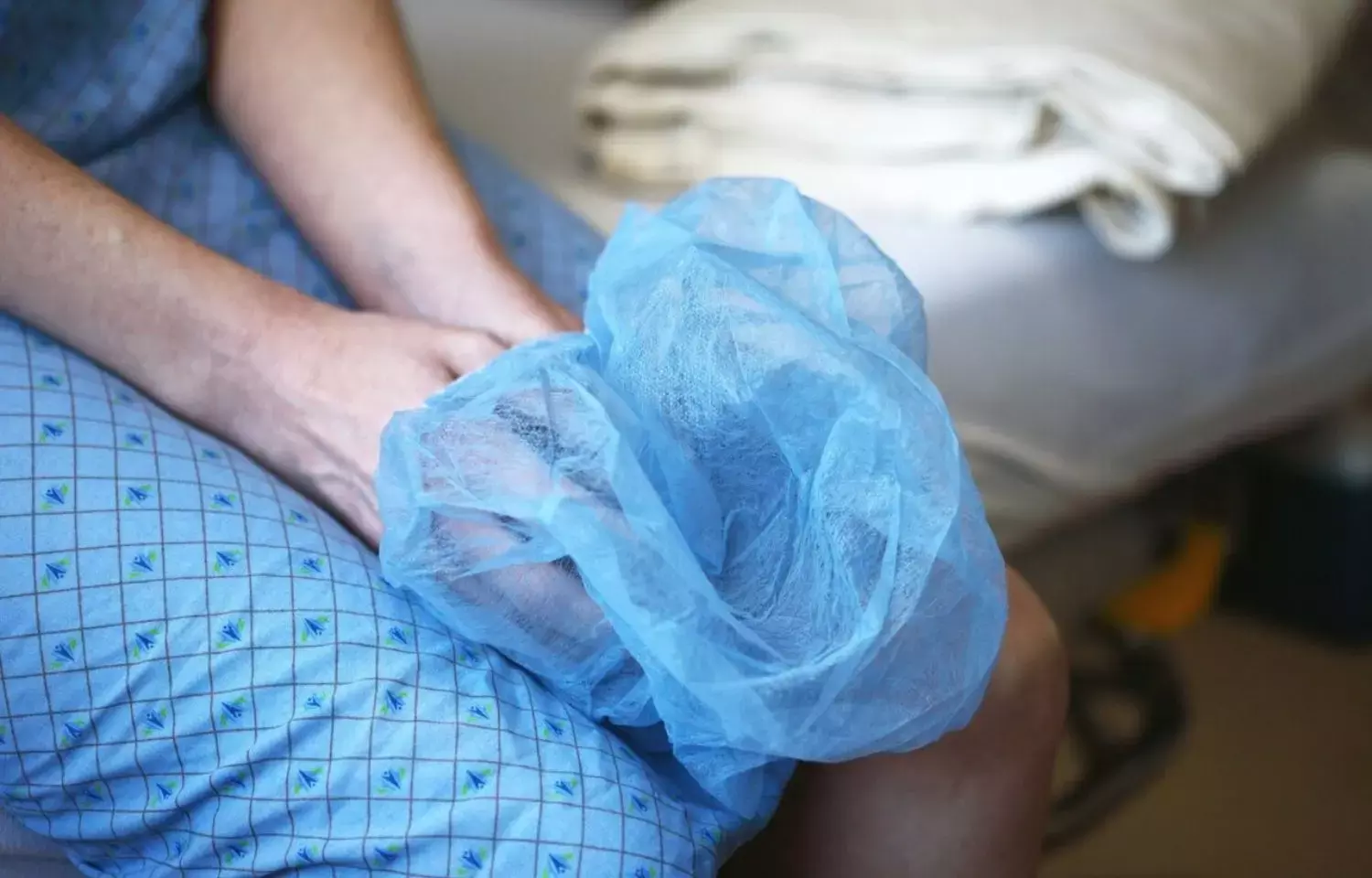- Home
- Medical news & Guidelines
- Anesthesiology
- Cardiology and CTVS
- Critical Care
- Dentistry
- Dermatology
- Diabetes and Endocrinology
- ENT
- Gastroenterology
- Medicine
- Nephrology
- Neurology
- Obstretics-Gynaecology
- Oncology
- Ophthalmology
- Orthopaedics
- Pediatrics-Neonatology
- Psychiatry
- Pulmonology
- Radiology
- Surgery
- Urology
- Laboratory Medicine
- Diet
- Nursing
- Paramedical
- Physiotherapy
- Health news
- Fact Check
- Bone Health Fact Check
- Brain Health Fact Check
- Cancer Related Fact Check
- Child Care Fact Check
- Dental and oral health fact check
- Diabetes and metabolic health fact check
- Diet and Nutrition Fact Check
- Eye and ENT Care Fact Check
- Fitness fact check
- Gut health fact check
- Heart health fact check
- Kidney health fact check
- Medical education fact check
- Men's health fact check
- Respiratory fact check
- Skin and hair care fact check
- Vaccine and Immunization fact check
- Women's health fact check
- AYUSH
- State News
- Andaman and Nicobar Islands
- Andhra Pradesh
- Arunachal Pradesh
- Assam
- Bihar
- Chandigarh
- Chattisgarh
- Dadra and Nagar Haveli
- Daman and Diu
- Delhi
- Goa
- Gujarat
- Haryana
- Himachal Pradesh
- Jammu & Kashmir
- Jharkhand
- Karnataka
- Kerala
- Ladakh
- Lakshadweep
- Madhya Pradesh
- Maharashtra
- Manipur
- Meghalaya
- Mizoram
- Nagaland
- Odisha
- Puducherry
- Punjab
- Rajasthan
- Sikkim
- Tamil Nadu
- Telangana
- Tripura
- Uttar Pradesh
- Uttrakhand
- West Bengal
- Medical Education
- Industry
Dasiglucagon effectively reduces postprandial hypoglycemia after bariatric surgery

Denmark: A recent study in the journal Diabetes Care showed that dasiglucagon effectively reduced postprandial hypoglycemia in Roux-en-Y gastric bypass (RYGB)–operated patients suffering from post-bariatric hypoglycemia (PBH). Dasiglucagon is a novel stable glucagon analog in a liquid formulation.
Dasiglucagon is an antihypoglycemic agent indicated for treating severe hypoglycemia in pediatric and adult patients with diabetes aged 6 years and above. It works by stimulating glycogen breakdown and release of glucose from the liver by increasing the blood glucose concentration by activating hepatic glucagon receptors. Dasiglucagon comes in 0.6 mg/0.6 mL single-dose autoinjector and 0.6 mg/0.6 mL single-dose prefilled syringe.
The study was conducted by Filip K. Knop, Copenhagen University Hospital – Herlev and Gentofte, Hellerup, Denmark, and colleagues with an aim to investigate the efficacy and safety of dasiglucagon, in Roux-en-Y gastric bypass–operated individuals suffering from postbariatric hypoglycemia in a randomized, double-blind, placebo-controlled, crossover trial.
The study included 10 RYGB-operated participants with continuous glucose monitoring–verified PBH. They were randomly assigned to 3 trial days, each consisting of a 240-min standardized liquid mixed-meal test with the subcutaneous injection of placebo or 80 μg or 200 μg dasiglucagon.
Treatment with both 80 and 200 µg dasiglucagon compared with placebo increased nadir plasma glucose (PG) (placebo: 3.0 ± 0.2 mmol/L [mean ± SEM]; 80 μg dasiglucagon: 3.9 ± 0.3 mmol/L; 200 μg dasiglucagon: 4.5 ± 0.2 mmol/L) and reduced time in hypoglycemia (PG <3.9 mmol/L) by 70.0 min.
To conclude, single-dose administration of dasiglucagon effectively mitigated postprandial hypoglycemia.
"Our findings suggest that dasiglucagon may be a useful therapeutic agent for postbariatric postprandial hypoglycemia," the authors conclude. "There is a need for further studies assessing the side effects of dasiglucagon administration."
Reference:
Casper K. Nielsen, Caroline C. Øhrstrøm, Urd L. Kielgast, Dorte L. Hansen, Bolette Hartmann, Jens J. Holst, Asger Lund, Tina Vilsbøll, Filip K. Knop; Dasiglucagon Effectively Mitigates Postbariatric Postprandial Hypoglycemia: A Randomized, Double-Blind, Placebo-Controlled, Crossover Trial. Diabetes Care 2022; dc212252. https://doi.org/10.2337/dc21-2252
Dr Kamal Kant Kohli-MBBS, DTCD- a chest specialist with more than 30 years of practice and a flair for writing clinical articles, Dr Kamal Kant Kohli joined Medical Dialogues as a Chief Editor of Medical News. Besides writing articles, as an editor, he proofreads and verifies all the medical content published on Medical Dialogues including those coming from journals, studies,medical conferences,guidelines etc. Email: drkohli@medicaldialogues.in. Contact no. 011-43720751


